
Belem: The Timeless Charm of Lisbon's Riverside Gem
Belem, a historic district in the western part of Lisbon, is a treasure trove of Portugal's Age of Discovery. As you stroll through its streets, you'll be transported back to the 15th and 16th centuries, when explorers like Vasco da Gama set sail from these very shores. The stunning architecture, picturesque gardens, and rich maritime history make Belem a must-visit for any traveler. One of the highlights of Belem is the iconic Jeronimos Monastery, a UNESCO World Heritage Site. This architectural masterpiece, with its intricate Manueline style, offers a glimpse into Portugal's opulent past. Nearby, the Belem Tower stands as a sentinel over the Tagus River, a symbol of Portugal's seafaring prowess. Don't miss the Monument to the Discoveries, where you can climb to the top for a breathtaking view of the river and the city. Belem is also a haven for food lovers. The famous Pasteis de Belem, a delicious custard tart, is a must-try. You can enjoy this treat at the Antiga Confeitaria de Belem, a bakery that has been serving these pastries since 1837. The neighborhood is also home to several excellent seafood restaurants, offering fresh catches from the Atlantic. In addition to its historical and culinary attractions, Belem boasts beautiful parks and gardens. The Jardim Botanico Tropical and the Belem Cultural Center provide tranquil spots to relax and unwind. Whether you're a history buff, a foodie, or simply looking for a scenic place to explore, Belem offers a unique blend of experiences that will leave a lasting impression.
Local tips in Belem
- Visit the Jeronimos Monastery early in the morning to avoid long lines.
- Don't miss trying the Pasteis de Belem at the Antiga Confeitaria de Belem.
- Take a walk along the riverside promenade for beautiful views of the Tagus River.
- Explore the Belem Cultural Center for contemporary art exhibitions and performances.
- Wear comfortable shoes, as there is a lot to explore on foot.
Belem: The Timeless Charm of Lisbon's Riverside Gem
Belem, a historic district in the western part of Lisbon, is a treasure trove of Portugal's Age of Discovery. As you stroll through its streets, you'll be transported back to the 15th and 16th centuries, when explorers like Vasco da Gama set sail from these very shores. The stunning architecture, picturesque gardens, and rich maritime history make Belem a must-visit for any traveler. One of the highlights of Belem is the iconic Jeronimos Monastery, a UNESCO World Heritage Site. This architectural masterpiece, with its intricate Manueline style, offers a glimpse into Portugal's opulent past. Nearby, the Belem Tower stands as a sentinel over the Tagus River, a symbol of Portugal's seafaring prowess. Don't miss the Monument to the Discoveries, where you can climb to the top for a breathtaking view of the river and the city. Belem is also a haven for food lovers. The famous Pasteis de Belem, a delicious custard tart, is a must-try. You can enjoy this treat at the Antiga Confeitaria de Belem, a bakery that has been serving these pastries since 1837. The neighborhood is also home to several excellent seafood restaurants, offering fresh catches from the Atlantic. In addition to its historical and culinary attractions, Belem boasts beautiful parks and gardens. The Jardim Botanico Tropical and the Belem Cultural Center provide tranquil spots to relax and unwind. Whether you're a history buff, a foodie, or simply looking for a scenic place to explore, Belem offers a unique blend of experiences that will leave a lasting impression.
Iconic landmarks you can’t miss
Belém Tower
Explore the stunning Belém Tower, a UNESCO World Heritage site in Lisbon, showcasing Portugal's rich maritime history and breathtaking architecture.
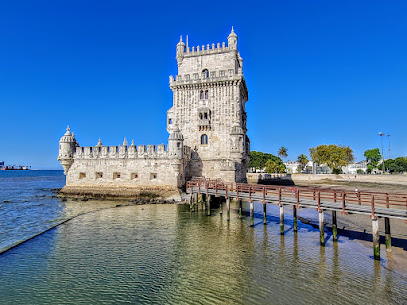
Jardim da Torre de Belém
Discover the serene beauty of Jardim da Torre de Belém, a lush garden offering picturesque views and rich Portuguese heritage near Lisbon's iconic landmarks.
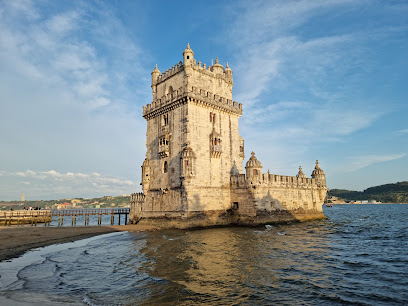
Centro Cultural de Belém
Explore art, history, and performance at the Centro Cultural de Belém, a cultural jewel in Lisbon's vibrant Belém district.
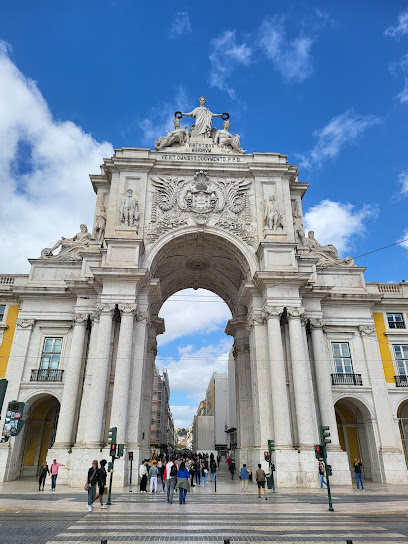
Palácio Nacional de Belém
Explore the majestic Palácio Nacional de Belém, a historical gem in Lisbon, where art, culture, and Portugal's rich heritage come together beautifully.
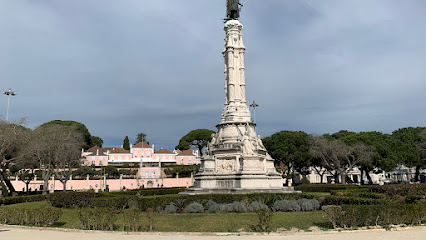
Church of St. María of Belém
Explore the stunning Church of St. María of Belém in Lisbon, a masterpiece of Manueline architecture and a UNESCO World Heritage site.
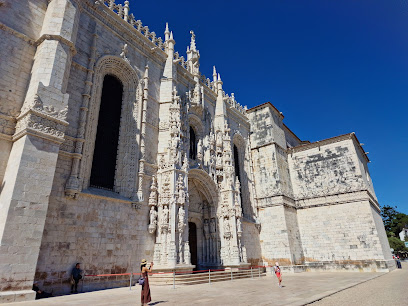
Belem Lighthouse
Discover the Belem Lighthouse in Lisbon, a captivating historical landmark that showcases Portugal's maritime heritage and stunning river views.
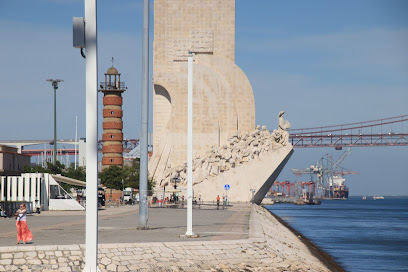
Real Mosteiro de Santa Maria de Belém
Discover the architectural brilliance and historical significance of the Real Mosteiro de Santa Maria de Belém in Lisbon, a UNESCO World Heritage site.
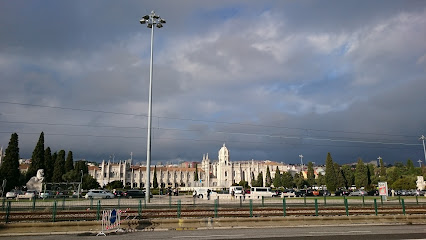
Saudade - a Mural by Mário Belém
Discover the emotional depth of 'Saudade,' a stunning mural by Mário Belém in Lisbon that captures the essence of longing and nostalgia in vibrant colors.
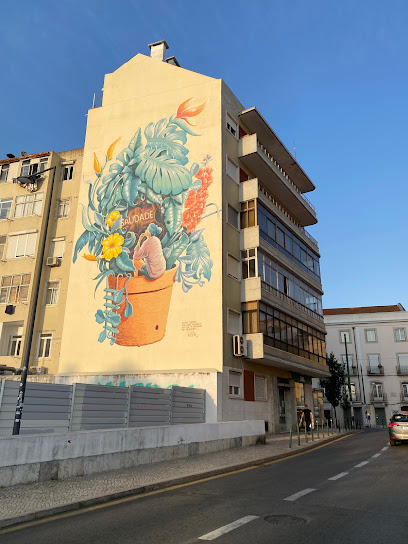
Chafariz do Palácio de Belém
Explore the majestic Chafariz do Palácio de Belém, a historical fountain that reflects Lisbon's rich architectural heritage and serene beauty.
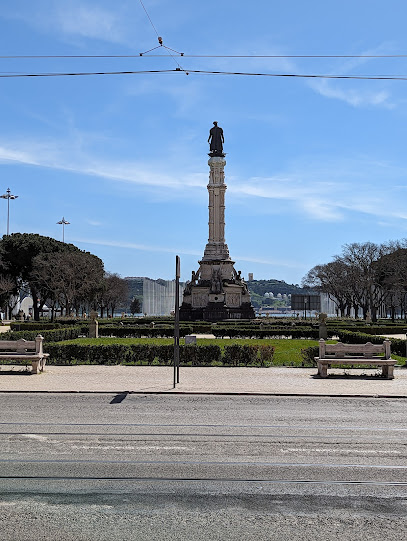
Primeira Pedra
Explore Primeira Pedra, a historic landmark in Lisbon's Belem district, where architectural beauty meets rich Portuguese culture and history.
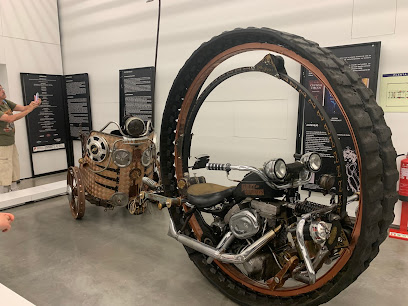
Unmissable attractions to see
Belém Tower
Explore Belém Tower, a UNESCO World Heritage site, showcasing Lisbon's maritime history and stunning Manueline architecture along the Tagus River.
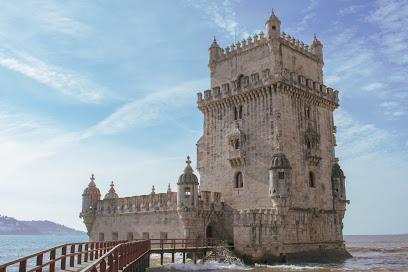
Jardim da Torre de Belém
Discover the serene beauty of Jardim da Torre de Belém, a lush garden in Lisbon filled with vibrant flowers, historical charm, and stunning river views.
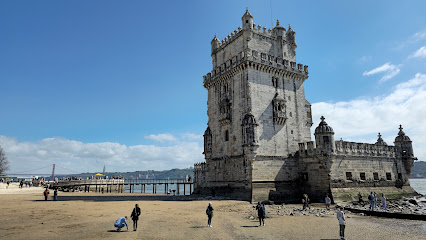
Padrão dos Descobrimentos
Explore the iconic Padrão dos Descobrimentos, a monument celebrating Portugal's Age of Discoveries, with breathtaking views and rich maritime history.
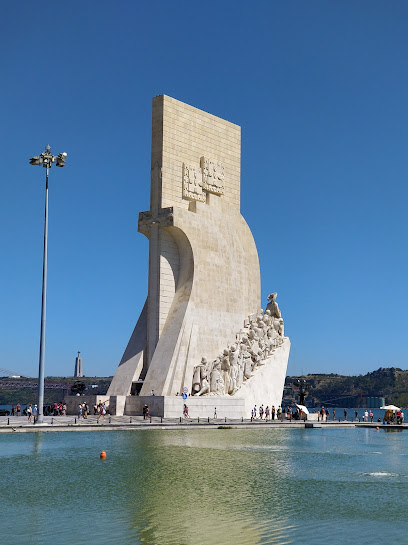
Jerónimos Monastery
Explore the breathtaking Jerónimos Monastery in Lisbon, a UNESCO World Heritage Site showcasing stunning Manueline architecture and deep maritime history.
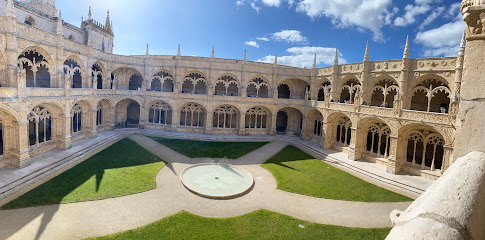
Centro Cultural de Belém
Explore the artistic and cultural treasures at Lisbon's Centro Cultural de Belém, a hub for creativity and inspiration by the river.
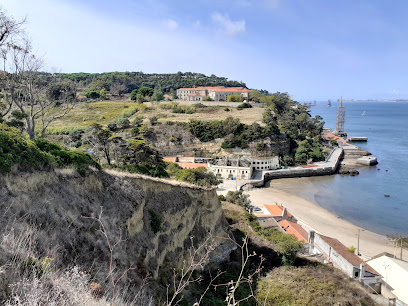
Palácio Nacional de Belém
Explore the Palácio Nacional de Belém, a stunning blend of history and architecture in Lisbon, showcasing Portugal's rich cultural heritage.
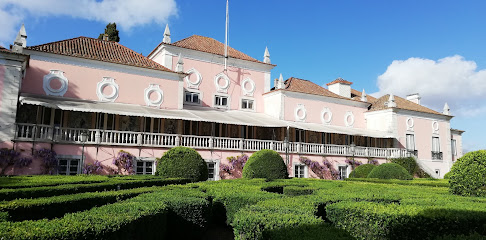
Belem Lighthouse
Discover the historic Belem Lighthouse in Lisbon, a stunning landmark steeped in maritime heritage and picturesque views of the Tagus River.
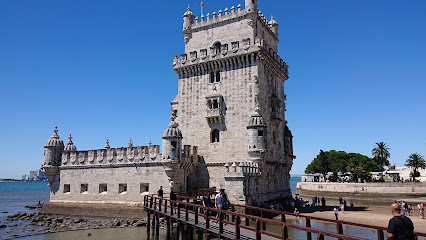
Escultura de luz
Experience the dazzling Escultura de Luz in Lisbon, a stunning light sculpture that captivates visitors with its vibrant displays and artistic charm.
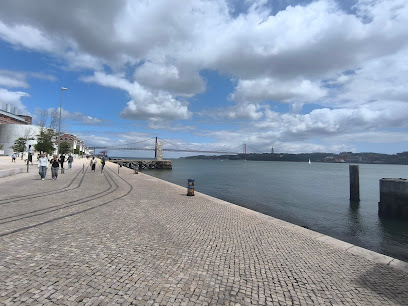
Street Art - Revolução dos Cravos, 25 de Abril
Explore Revolução dos Cravos: Lisbon's vibrant street art hub showcasing the spirit of revolution through stunning murals and captivating urban culture.
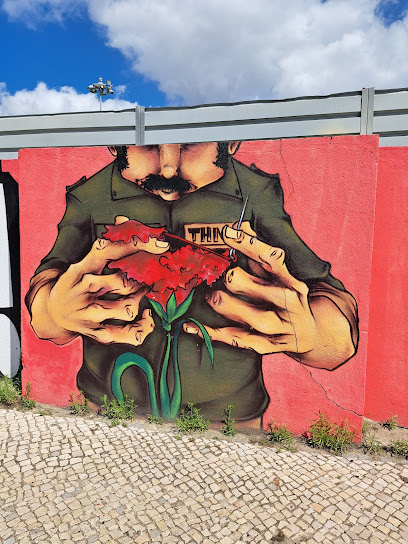
Primeira Pedra
Explore Primeira Pedra, a historic gem in Belem, Lisbon that encapsulates the essence of Portugal's maritime legacy and cultural richness.
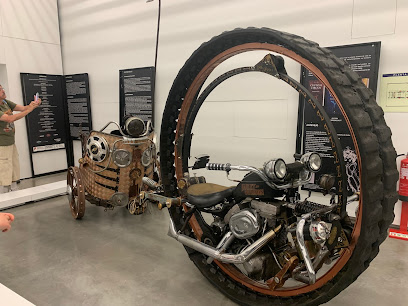
Essential places to dine
Este Oeste
Experience the unique fusion of sushi and Italian cuisine at Este Oeste in Lisbon – where flavor meets creativity.
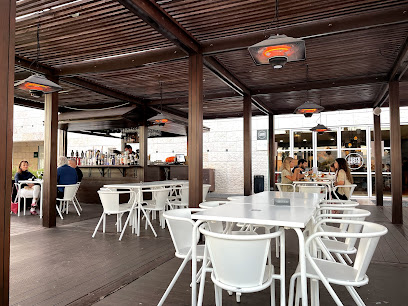
Mister Tapas
Experience authentic Portuguese tapas at Mister Tapas in Belém—where tradition meets modern culinary creativity amidst stunning waterfront views.
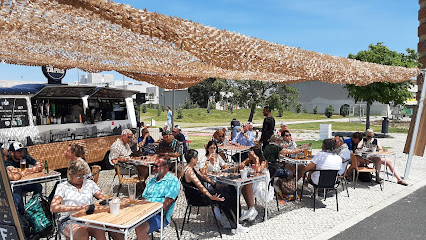
Queijadas de Belem
Experience the authentic taste of Portugal with delicious queijadas at Queijadas de Belem - a true Lisbon delight.
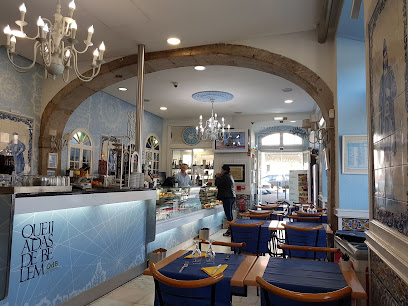
Restaurante Adega de Belém
Experience the authentic taste of Portugal at Restaurante Adega de Belém in Lisbon – where tradition meets flavor.
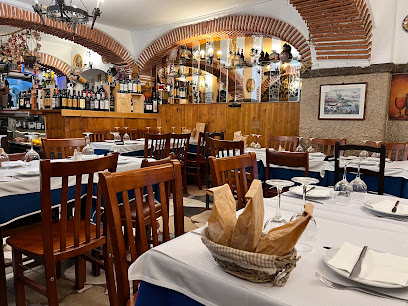
Taberna dos Ferreiros
Experience authentic Portuguese cuisine in Lisbon at Taberna dos Ferreiros, where every dish tells a story.
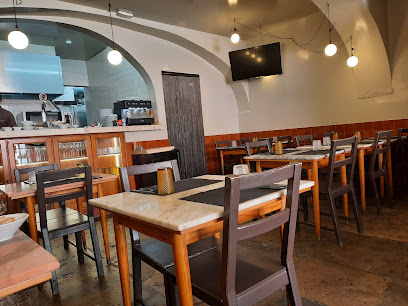
Descobre
Discover the essence of Portuguese cuisine at Descobre, where tradition meets innovation in a cozy setting.
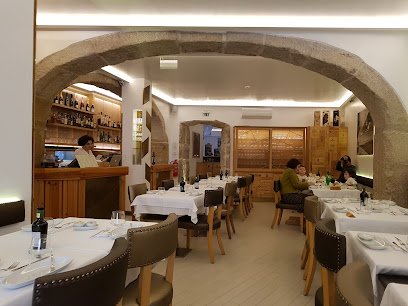
La Fóllia de Belém
Discover the flavors of Portugal at La Fóllia de Belém – where tradition meets modern cuisine in a vibrant setting.
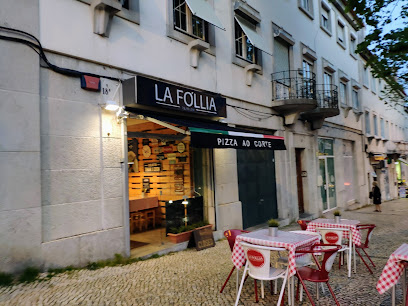
Ceu Na Boca
Discover authentic Portuguese flavors at Ceu Na Boca, where delicious dishes and a warm atmosphere await in the heart of Lisbon.
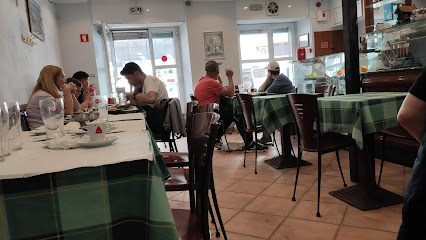
Flor dos Jerónimos
Discover authentic Portuguese cuisine at Flor dos Jerónimos in Lisbon's historic Belém district, where tradition meets flavor.
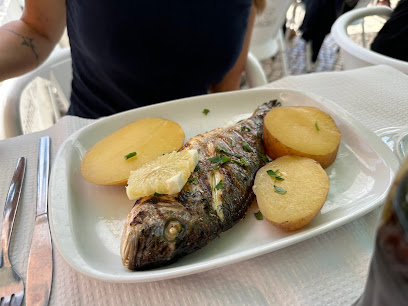
Restaurante Ostras Sobre Rodas (Belém)
Discover fresh seafood delights at Restaurante Ostras Sobre Rodas in Belém - where culinary excellence meets stunning riverside views.
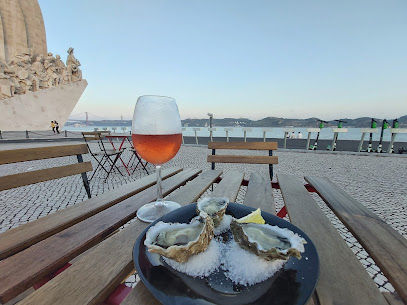
Markets, malls and hidden boutiques
Pastéis de Belém
Discover the iconic Pastéis de Belém, where every custard tart tells a delicious story of Lisbon's culinary heritage.
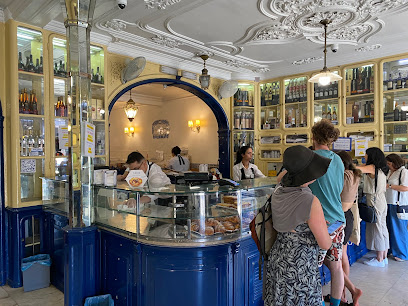
Centro Cultural de Belém
Discover the rich cultural tapestry of Lisbon at the Centro Cultural de Belém, a vibrant hub of art, performance, and history along the Tagus River.
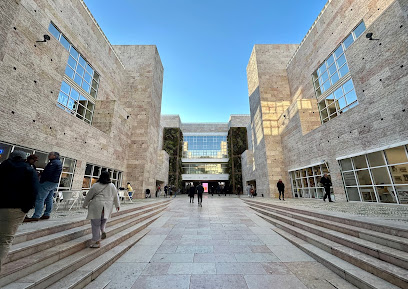
Toranja - Belém
Discover the artistic essence of Lisbon at Toranja - Belém, a treasure trove of unique crafts and local creativity.
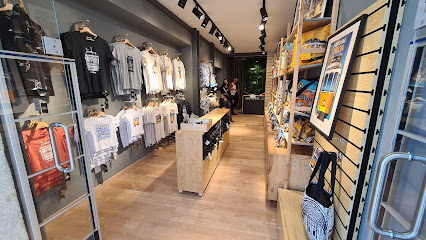
Missangas&Co - Belém
Explore Missangas&Co in Belém for exquisite handmade jewelry and vibrant beadwork, showcasing the artistry of Portuguese craftsmanship.
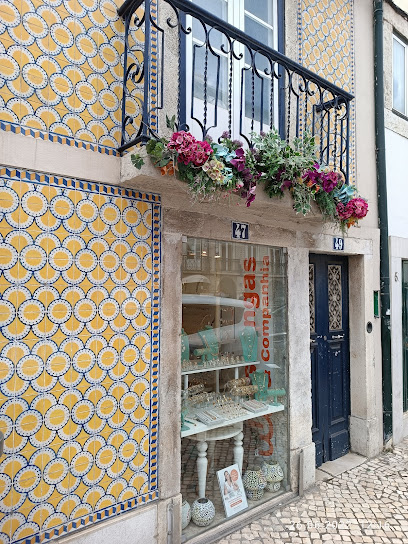
Soma Ideas
Explore Soma Ideas: The Heart of Handmade Crafts, Unique Souvenirs, and Local Artistry in Lisbon.
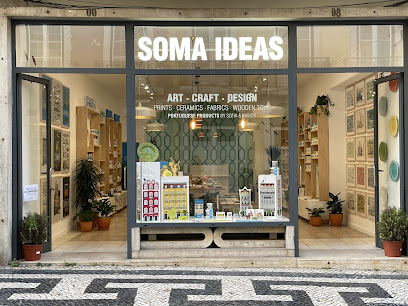
Lisbon Shop
Explore Lisbon Shop for unique souvenirs reflecting the city's rich culture and history, perfect for remembering your visit to Portugal.
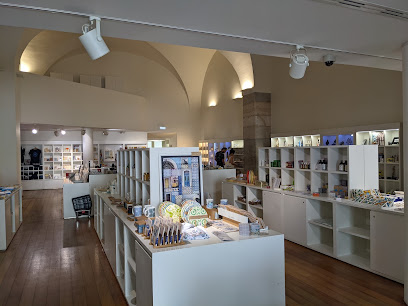
J & R ARTESANATO
Explore J & R Artesanato, Lisbon’s charming souvenir store offering unique crafts, antiques, and refreshing local soft drinks for the perfect cultural experience.
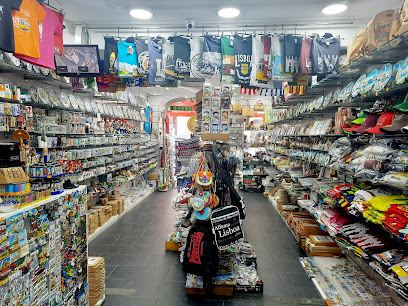
Next Door Shop
Explore Next Door Shop in Lisbon - your destination for unique Portuguese crafts, fashion, and local artistry in the heart of Belém.
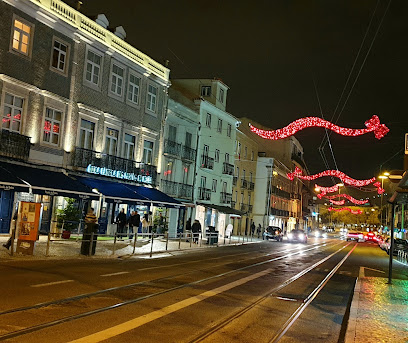
Handicraft Clothing And Fashion Belém
Discover unique handcrafted clothing and exquisite fashion items at Handicraft Clothing and Fashion in Belém, the heart of Lisbon's artisanal culture.
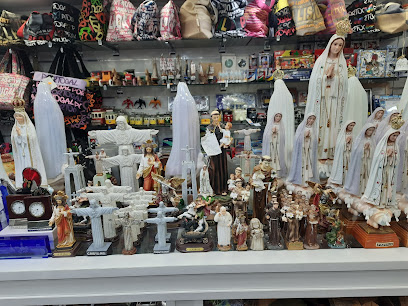
Mercadores de Memórias
Explore Mercadores de Memórias in Lisbon for unique antiques, fashion accessories, and oriental treasures that capture the essence of Portuguese culture.
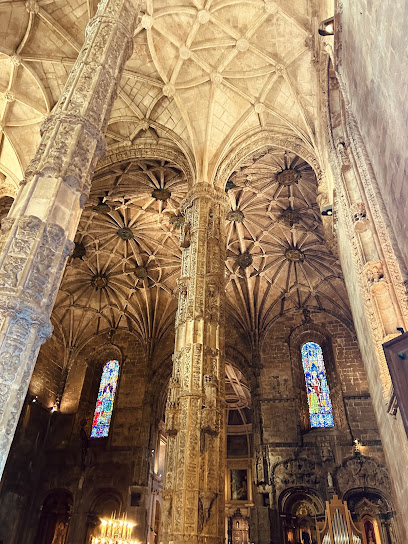
Essential bars & hidden hideouts
Mister Tapas
Discover the vibrant flavors of Lisbon at Mister Tapas, a waterfront bar offering delicious tapas and expertly crafted cocktails in Belém.
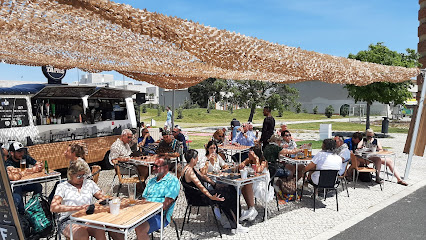
Red Frog Speakeasy
Experience the allure of Red Frog Speakeasy, Lisbon's hidden cocktail bar, featuring innovative drinks and vintage charm.
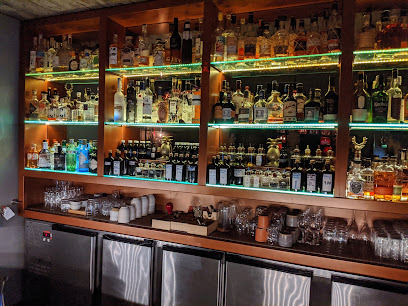
Gastrobar 38º 41'
Experience the perfect blend of modern cuisine and breathtaking views at Gastrobar 38º 41' in Lisbon's stunning waterfront.
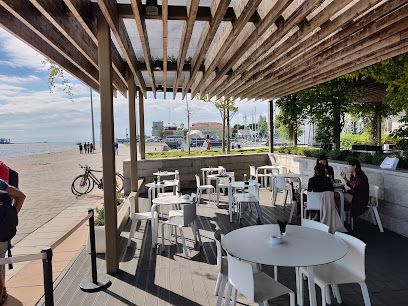
CASUAL LOUNGE CAFFÉ
Experience the perfect blend of cocktails, art, and culture at Casual Lounge Caffé in Lisbon, a must-visit for art lovers and cocktail enthusiasts.
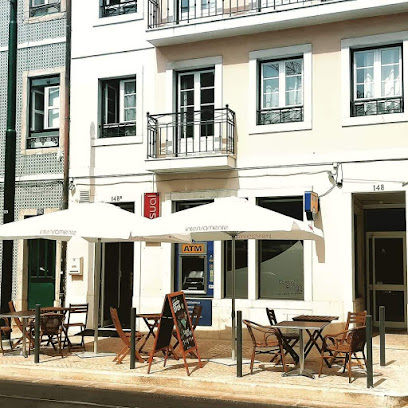
Ceu Na Boca
Discover the authentic flavors of Portuguese cuisine at Ceu Na Boca, a delightful restaurant in the heart of Lisbon, perfect for every food lover.
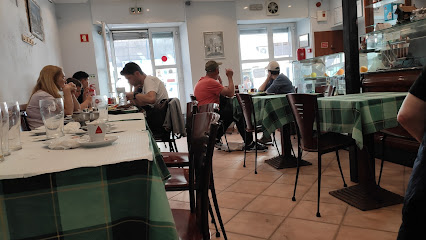
Wineguest
Discover the essence of Portuguese wines at Wineguest, where delightful tapas and a welcoming atmosphere await every visitor.
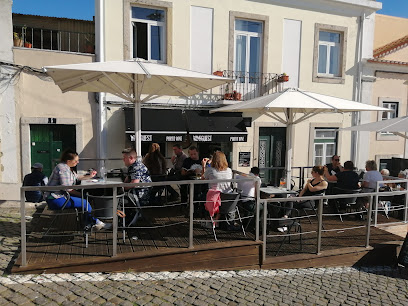
Bananacafe
Discover the charm of Bananacafe, a cozy bar in Lisbon offering refreshing drinks and a vibrant atmosphere near iconic landmarks.
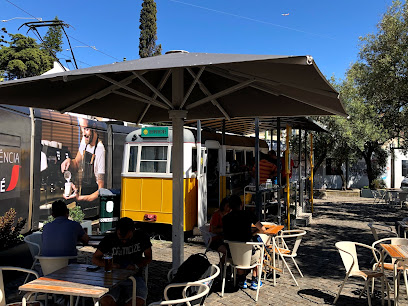
Wine With a View - Torre de Belém
Discover a hidden gem in Lisbon with breathtaking views, local wines, and a relaxed atmosphere at Wine With a View in Torre de Belém.
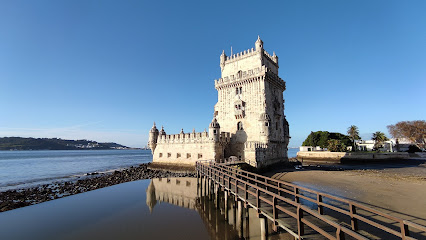
Quiosque Belém
Quiosque Belém: Experience the Vibrant Spirit of Lisbon with Delicious Local Drinks and Stunning Views.
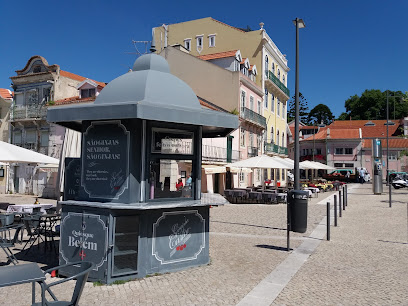
Pedal A Gosto
Discover the vibrant cocktail culture of Lisbon at Pedal A Gosto, near the iconic Torre de Belém, and indulge in exquisite drinks in a chic atmosphere.
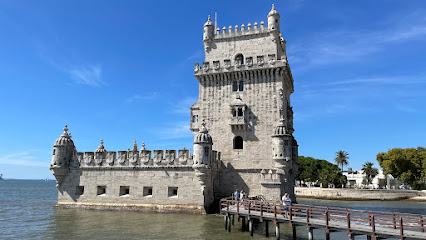
Local Phrases
-
- HelloOlá
[oh-LAH] - GoodbyeAdeus
[ah-DEH-oos] - YesSim
[seem] - NoNão
[nown] - Please/You're welcomePor favor/De nada
[por fah-VOR / deh NA-da] - Thank youObrigado/a
[oh-bree-GAH-doo/ah] - Excuse me/SorryCom licença/Desculpe
[kohm lee-SEN-sah / deh-SKUL-peh] - How are you?Como está?
[KOH-moo ehs-TAH] - Fine. And you?Bem. E você?
[behn / eh voh-SEH] - Do you speak English?Fala inglês?
[FAH-lah een-GLEHS] - I don't understandNão entendo
[nown ehn-TEN-doo]
- HelloOlá
-
- I'd like to see the menu, pleaseGostaria de ver o menu, por favor
[goh-stah-REE-ah deh vehr oo MEH-noo / por fah-VOR] - I don't eat meatNão como carne
[nown KOH-moo KAHR-neh] - Cheers!Saúde!
[sow-DEH] - I would like to pay, pleaseGostaria de pagar, por favor
[goh-stah-REE-ah deh pah-GAHR / por fah-VOR]
- I'd like to see the menu, pleaseGostaria de ver o menu, por favor
-
- Help!Socorro!
[soh-KOH-roh] - Go away!Vá embora!
[vah ehm-BOH-rah] - Call the Police!Chame a polícia!
[SHAH-meh ah poh-LEE-see-ah] - Call a doctor!Chame um médico!
[SHAH-meh oom MEH-dee-koo] - I'm lostEstou perdido/a
[eh-STOH pehr-DEE-doo/ah] - I'm illEstou doente
[eh-STOH doo-EHN-teh]
- Help!Socorro!
-
- I'd like to buy...Gostaria de comprar...
[goh-stah-REE-ah deh kohm-PRAR] - I'm just lookingEstou só a ver
[eh-STOH soh ah vehr] - How much is it?Quanto custa?
[KWAHN-too KOOS-tah] - That's too expensiveIsso é muito caro
[EE-so eh MWEEN-too KA-roo] - Can you lower the price?Pode baixar o preço?
[POH-deh BAI-shar oo PREH-so]
- I'd like to buy...Gostaria de comprar...
-
- What time is it?Que horas são?
[keh OH-rahs sa-oh] - It's one o'clockÉ uma hora
[eh OO-mah OH-ra] - Half past (10)Meia (10)
[MEH-yah (DEE-ahs)] - MorningManhã
[mah-NYAH] - AfternoonTarde
[TAR-deh] - EveningNoite
[NOY-teh] - YesterdayOntem
[ohn-TEHM] - TodayHoje
[OH-zheh] - TomorrowAmanhã
[ah-mah-NYAH] - 1Um
[oom] - 2Dois
[doh-ISH] - 3Três
[trehsh] - 4Quatro
[KWAH-troh] - 5Cinco
[SEEN-koh] - 6Seis
[saysh] - 7Sete
[SEH-teh] - 8Oito
[OY-toh] - 9Nove
[NOH-veh] - 10Dez
[dehsh]
- What time is it?Que horas são?
-
- Where's a/the...?Onde é o/a...?
[OHN-deh eh oo/ah] - What's the address?Qual é o endereço?
[kwahl eh oo ehn-DEH-reh-soo] - Can you show me (on the map)?Pode mostrar-me (no mapa)?
[POH-deh moh-SHAR-meh (noo MAH-pah)] - When's the next (bus)?Quando é o próximo (autocarro)?
[KWAHN-doo eh oo PROH-see-moo (ow-toh-KAH-roo)] - A ticket (to ....)Um bilhete (para ...)
[oom bee-LHEH-teh (PAH-rah)]
- Where's a/the...?Onde é o/a...?
History of Belem
-
Belém played a pivotal role during Portugal's Age of Discoveries in the 15th and 16th centuries. This era marked the expansion of Portuguese exploration and trade, with Belém serving as a departure point for many famous voyages, including those of Vasco da Gama to India. The iconic *Belém Tower*, built in 1519, was originally designed as a fortress to protect the entrance to the Tagus River and is a UNESCO World Heritage Site, symbolizing Portugal's maritime power.
-
The *Jerónimos Monastery*, another UNESCO World Heritage Site located in Belém, was commissioned by King Manuel I in 1501 to commemorate Vasco da Gama's successful voyage to India. The monastery's Manueline architecture reflects the wealth and power of Portugal during this period and serves as a testament to the country's rich maritime history.
-
The devastating earthquake of 1755 profoundly affected Lisbon, including Belém, leading to significant reconstruction efforts. Key structures, including the Jerónimos Monastery, were repaired or rebuilt, influencing the architectural landscape of the area. This disaster prompted urban reforms and changes in building practices across the city.
-
In the 19th century, Belém began to develop into a more urban area with the establishment of various industries, including the iconic *Pastéis de Belém* bakery. This period saw a shift from a predominantly maritime economy to one that incorporated tourism and local businesses, marking the beginning of Belém's transformation into a cultural hub.
-
In the late 20th and early 21st centuries, Belém evolved into a center for culture and the arts. This transformation was marked by the construction of the *Centro Cultural de Belém* (CCB) in 1992, which hosts a variety of cultural events, exhibitions, and performances. The area now combines historical heritage with modern cultural expressions, attracting both locals and international visitors.
Belem Essentials
-
Belém is easily accessible from other neighbourhoods in Lisbon. The most efficient way is to take the train from Cais do Sodré station, which operates frequent services to Belém station. Alternatively, you can take tram 15E from Praça da Figueira or Praça do Comércio, which also connects to Belém. Buses from various parts of the city, including routes 727 and 728, are available as well.
-
Belém is a relatively compact neighbourhood, making it ideal for walking. You can also rent bicycles from local bike-sharing services, which allows you to explore the waterfront and parks. The area is well-served by public transport, including trams and buses, which can take you to nearby attractions and back to the city centre.
-
Belém is generally safe for tourists; however, standard precautions should be taken. Avoid displaying valuables openly and be cautious in crowded areas. Petty theft, such as pickpocketing, can occur, particularly around major tourist sites like the Jerónimos Monastery and the Belém Tower. It is advisable to stay alert and keep your belongings secure.
-
In case of an emergency, dial 112 for police, fire, or medical assistance. The nearest hospital is Hospital de Santa Maria, located a short taxi ride away. Familiarize yourself with the location of the local police station, which is in Belém, in case of lost items or other incidents. It is also recommended to have travel insurance that covers emergencies.
-
Fashion: Do dress comfortably for walking, but consider modest attire when visiting churches. Don’t wear beachwear outside of the beach areas. Religion: Do respect local customs, especially at religious sites, and don’t take photos where prohibited. Public Transport: Do validate your ticket before boarding. Don’t block the aisles with bags. Greetings: Do greet locals with a friendly 'Olá'. Don’t forget to use polite forms of address when speaking to older individuals. Eating & Drinking: Do try the famous pastéis de nata from Pastéis de Belém. Don’t eat or drink in religious sites.
-
To experience Belém like a local, visit the local markets, such as the Mercado da Ribeira, where you can taste fresh seafood and other Portuguese delicacies. Take a leisurely stroll along the waterfront promenade, especially at sunset. Engage with local artisans at the Centro Cultural de Belém, which often hosts free exhibitions. Lastly, don't miss out on trying the traditional ginjinha, a cherry liqueur, at one of the local bars.
Nearby Cities to Belem
-
Things To Do in Cascais
-
Things To Do in Sintra
-
Things To Do in Setúbal
-
Things To Do in Caldas da Rainha
-
Things To Do in Évora
-
Things To Do in Viseu
-
Things To Do in Tomar
-
Things To Do in Coimbra
-
Things To Do in Badajoz
-
Things To Do in Faro
-
Things To Do in Aveiro
-
Things To Do in Huelva
-
Things To Do in Porto
-
Things To Do in Lamego
-
Things To Do in Guimarães











